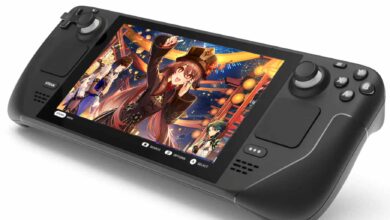The Role of Internet of Things in Transforming Industries and Smart Cities
The Internet of Things (IoT) has the potential to transform industries and smart cities by enabling data-driven decision-making, enhancing efficiency, and promoting sustainable practices. From manufacturing to supply chain management, urban infrastructure to public safety, IoT is revolutionizing how we live and work. With continued advancements and collaboration, IoT can drive innovation and create a more connected, efficient, and sustainable future for industries and cities worldwide. While playing online slot machines sounds tempting right now, take a small break to learn about the newest developments in this field.
IoT in Industries
Enhanced Efficiency
IoT technology provides industries with real-time insights into operations, enabling efficient management and optimization. By collecting data from sensors and devices, IoT systems can monitor and analyze various parameters, such as energy usage, machine performance, and inventory levels. This data-driven approach allows for predictive maintenance, reducing downtime, optimizing resource allocation, and improving overall productivity.
Supply Chain Management
IoT enables end-to-end visibility in supply chain operations. Sensors and RFID tags can track goods, monitor temperature and humidity, and provide real-time updates on their location. This level of transparency ensures better inventory management, reduces wastage, prevents theft, and streamlines logistics, resulting in cost savings and improved customer satisfaction.

Smart Manufacturing
IoT plays a pivotal role in the concept of Industry 4.0, facilitating the integration of physical production systems with digital technologies. Connected sensors and actuators enable machines and equipment to communicate and collaborate autonomously, leading to improved automation, intelligent decision-making, and reduced human error. This interconnectedness enables the concept of “smart factories” that are highly efficient, flexible, and adaptive to changing market demands.
Data-driven Insights
IoT generates vast amounts of data that can be analyzed to extract valuable insights. By harnessing machine learning and artificial intelligence, industries can leverage this data to gain a competitive edge. These insights can help in product development, market analysis, personalized marketing, and improving customer experiences.
IoT in Smart Cities
Urban Infrastructure
IoT is a key enabler of smart cities, transforming the way urban infrastructure is managed and operated. By integrating IoT devices with various systems like traffic lights, waste management, and public transportation, cities can optimize operations, reduce congestion, and enhance resource utilization. For example, connected sensors can detect empty parking spaces, allowing drivers to quickly find available spots, reducing traffic and pollution.
Energy Management
IoT enables smart grids that enhance energy management and conservation. By collecting real-time data on energy consumption, distribution, and demand, cities can optimize energy usage, identify areas of inefficiency, and promote sustainable practices. IoT-enabled devices like smart meters allow consumers to monitor and control their energy usage, leading to reduced costs and environmental impact.
Public Safety
IoT enhances public safety by enabling better monitoring, surveillance, and emergency response systems. Connected devices, such as video cameras, sensors, and wearables, can detect anomalies, monitor public spaces, and alert authorities in case of emergencies. IoT also enables predictive analytics, allowing cities to identify patterns and prevent crimes or accidents before they occur.
Environmental Sustainability
IoT plays a crucial role in promoting environmental sustainability in smart cities. By collecting data on air quality, water usage, and waste management, IoT systems enable cities to monitor and mitigate environmental risks. This data-driven approach helps in identifying pollution sources, implementing targeted interventions, and promoting eco-friendly practices.
Challenges and Considerations
While the potential benefits of IoT in transforming industries and smart cities are immense, several challenges and considerations need to be addressed:
Security and Privacy
IoT devices and networks are vulnerable to cybersecurity threats. Securing the vast number of connected devices and the data they generate is a significant challenge. Robust security measures and data protection regulations are crucial to address these concerns.
Interoperability and Standardization
The interoperability of IoT devices and systems is essential for seamless integration and efficient data exchange. The lack of standardized protocols and interfaces can hinder the scalability and effectiveness of IoT deployments. Collaborative efforts and industry-wide standards are necessary to overcome this challenge.
Infrastructure and Connectivity
IoT relies on robust and reliable network connectivity. Developing the necessary infrastructure and ensuring widespread connectivity, particularly in remote or underdeveloped areas, can be a challenge. Adequate investment and government initiatives are required to bridge the connectivity gap.
Healthcare and Well-Being
IoT is playing a significant role in revolutionizing healthcare and promoting well-being in smart cities. Connected medical devices, wearables, and sensors can monitor patient health parameters, track medication adherence, and provide real-time health data to healthcare providers. IoT also facilitates the integration of healthcare systems, allowing seamless sharing of patient information between hospitals, clinics, and healthcare professionals. This level of connectivity and data-driven insights enable personalized healthcare, improved treatment outcomes, and better overall well-being for individuals in smart cities.
Furthermore, IoT enhances the concept of telemedicine and remote healthcare delivery. IoT-enabled devices, such as smart pill dispensers and health trackers, can remind patients to take their medications, monitor vital signs, and provide valuable feedback to both patients and healthcare providers.
The integration of IoT with healthcare systems also holds promise for preventive healthcare. By analyzing data collected from wearable devices and other sources, IoT can identify patterns and provide insights on lifestyle choices, exercise routines, and dietary habits that may contribute to health risks. This information can empower individuals to make informed decisions about their well-being and encourage healthy living practices.
However, the adoption of IoT in healthcare also raises concerns related to data security and privacy. Healthcare data is highly sensitive and requires robust security measures to protect patient information. Healthcare providers and IoT manufacturers must ensure strict compliance with privacy regulations and implement measures to safeguard data integrity and confidentiality.




